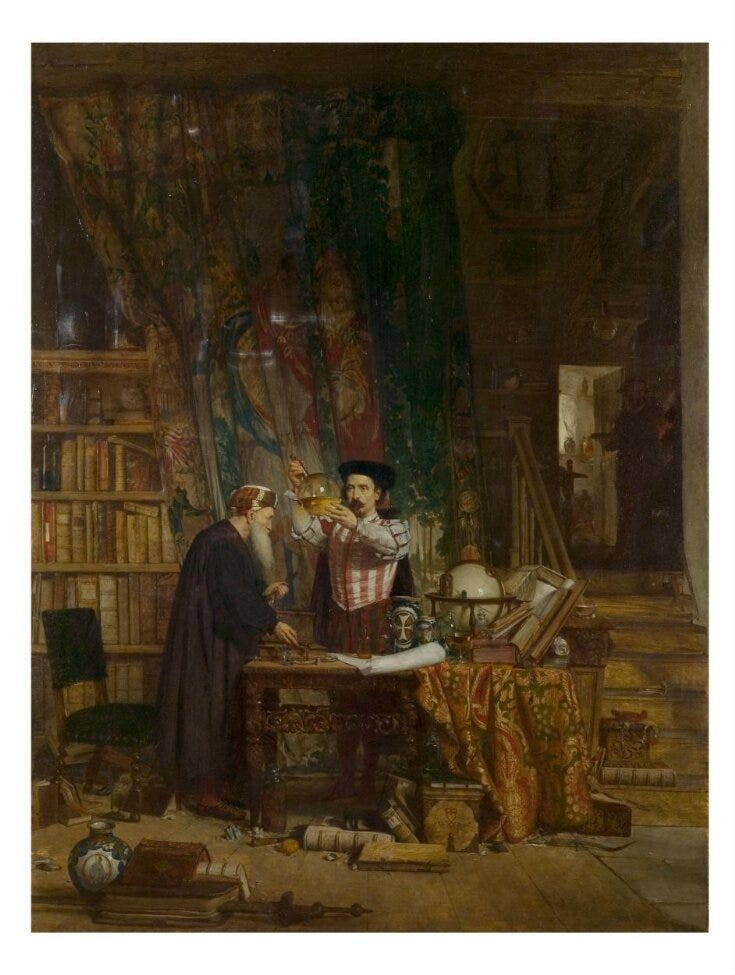Article Review of Anam's "Introduction: Forms of the Global Anglophone." (2019)
Article Review
Nasia Anam, “Introduction: Forms of the Global Anglophone,” Post45 (Feb. 22, 2019), https://post45.org/2019/02/introduction-forms-of-the-global-anglophone/.

Latter-day Saint prophet John Taylor wrote:
It is true intelligence for a man to take a subject that is mysterious and great in itself and to unfold and simplify it so that a child can understand it.1
One of the greatest challenges for academic writers is to avoid sequestering their writings in jargon filled and inaccessible rooms of the ivory tower, where not only is knowledge most likely kept behind exorbitant paywalls, but also is couched in such complicated, twisting language that even experts are left perplexed at the significance of the article. This introductory article by Nasia Anam, a professor of English at the University of Nevada, Reno, struggles with these challenges.
To be clear, this is not meant as a personal attack or slander of the author, but rather reflects a trend in academic writing that inhabits all spaces of the ivory tower. Why this article? I happened to be reading it in an attempt to understand the new literary trend known as “Global Anglophone” literature.
Anam in her essay begins with the question of, “What does the term ‘Global Anglophone’ signify?” A straight forward question, yet one that was never answered throughout her essay. Rather, the reader is led through a muddled journey of the author’s hiring, the appearance of the phrase “global Anglophone, its role in job markets, a vague attempt at situating the new trend between Postcolonial and World Literature studies, and a brief introduction to the journal’s additional articles. All well and good, yet one wonders what was the articles’ point.
This issue, of avoiding directly answering what in the world this new trend is, while nodding to other academics and other literary studies did little to aid me in understanding this new trend. The article had excellent style, yet was overburdened with the weight of academic jargon, the reader left with little actual understanding in the long run. Furthermore, because the central question remained unanswered, the article felt disjointed and unconnected.
I freely admit I am not a literary scholar. Yet, the inability of the article to answer a simple question, one which poses a larger problem to the world of literature and history, lends itself to a broader trend in academia; the insular writing methodology of so many residing in the “ivory tower.” While scholars routinely call for greater accessibility of academic work for the public, the problem is the public rarely engages with the academic’s production. Why? Scholars may grumble it is due to backwardness, a fear of knowledge, or Republican politicians. Yet, perhaps the larger challenge is that scholars do not frame their scholarship in a comprehensible manner which allows broad access. Jargon and grandiose verbiage signals intelligence, yet, if none but those occupying the same wing of the academic salon can understand your work, is it truly as mighty as you think?
There is a need for jargon in academic writing, particularly as scholars seek to convey complex ideas in short fashion. But perhaps there can be found a middle ground, wherein complexity is blended with simplicity. This likely would go a long way in not only making knowledge more accessible, but also more intelligible.
Robert Swanson
John Taylor in Sel. G. Homer Durham, The Gospel Kingdom (1943), 270.


Thank you so much for your thoughtful response to “Introduction: Forms of the Global Anglophone.” This article’s intended audience is specifically other academics in literary studies, meaning a discipline-specific one. I was asked to write it to introduce a cluster of essays I edited meditating on the impacts of the term “global anglophone” in hiring practices and scholarship. I understand that for a passing reader, the “jargon” specific to literary studies that I employ may be frustratingly obscure, but such is the nature of reading scholarly journal articles that are pitched towards peers in the field rather than a general audience, wouldn’t you agree? That is to say, it was not written with interdisciplinary legibility in mind. This was more of an intra-office memo, if you catch my drift. I always remind my students that they wouldn’t pick up a medical journal and expect to understand the profession-specific “jargon” being used, so why should it be different for literary scholarship? I wouldn’t expect to understand all references and field-specific vocabulary were I to read an essay introducing a special issue on current historiography trends. I am sorry to learn that you found my article to be uninformative for your purposes, but it has since launched an active debate in the field and gets cited in academic essays and taught in college courses regularly. That doesn’t mean it’s good, per se, it just evidences the fact that numerous scholars have found it relevant for their own professional purposes. I have written essays for more general audiences that don’t delve into nitty gritty field specific concerns, and they’re undoubtedly a lot more interesting to outside readers. Regardless, I really appreciate you taking the time to review my essay. It means a lot to me that non literary scholars are reading my work, even if they don’t particularly enjoy the experience! By the by, there have been a few issues of the journal Interventions that have special issues on the global anglophone which contain many excellent articles more suited to your purposes.